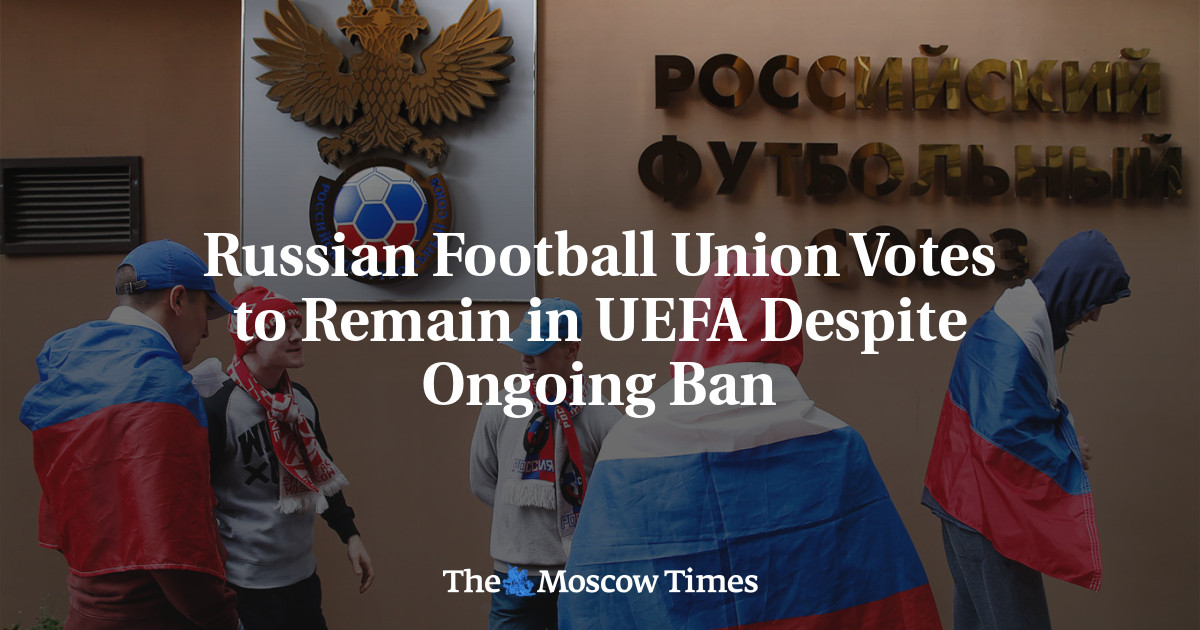
The Russian Football Union reaffirmed its desire to see Russian teams return to international competition on Friday following its decision not to leave UEFA and seek membership with Asia’s football confederation instead.
European football’s governing body, UEFA, banned Moscow from competition after President Vladimir Putin invaded Ukraine in February. However, despite Russia’s mooted abandonment of UEFA, a Friday meeting of the Russian Football Union’s executive committee decided against making a switch to Asia.
“We are indeed considering the option of returning to UEFA competitions as soon as possible,” said Alexander Dyukov, president of the Russian Football Union.
“It is important for us to take part in the 2026 World Cup qualifiers.”
The Russian Football Union was proposing the establishment of a group to conduct consultations with UEFA in an effort to resume ties, said Dyukov. He did not rule out that Russia could seek membership with the Asian Football Confederation (AFC) at a later stage.
As part of the UEFA ban, Russia has been excluded from the qualifying draw for Euro 2024 and will not take part in upcoming qualifying matches starting next March.
Russia has also been banned from international football competitions by FIFA, barring it from the 2022 World Cup in Qatar which ended with a victory for Argentina.
The Switzerland-based Court of Arbitration for Sport (CAS) has rejected Russia’s appeals to overturn the FIFA and UEFA bans.
The decision to leave UEFA and join AFC would have a share of consequences — primarily financial ones — for Russian clubs, especially those previously involved in top-division European competitions, such as the Champions League.
Yevgeny Giner, the president of CSKA Moscow, one of Russia’s best-known football clubs, warned in a recent interview with the daily Sport-Express that “we need to take into account the enormous difference in the financial component” and the “status of potential international matches” as part of the Asian leagues.
“We will literally have to start from zero,” he said.
“Therefore, perhaps we should wait for a return to big European football,” Giner added.